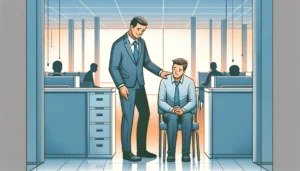See how Odeon united teams across Europe during their public M&A
- 6 Min Read
HR’s role in Mergers & Acquisitions focusses on making the transition as smooth as possible. This can be done through integration, employee engagement and making sure employees are easily able to adapt to a corporate culture change. In July 2016, AMC Theatres announced its intention to buy Odeon & UCI, creating the largest cinema operator […]
- Author: Unzela Khan
- Date published: Jul 5, 2017
- Categories

HR’s role in Mergers & Acquisitions focusses on making the transition as smooth as possible. This can be done through integration, employee engagement and making sure employees are easily able to adapt to a corporate culture change.
In July 2016, AMC Theatres announced its intention to buy Odeon & UCI, creating the largest cinema operator in the world. In order to ensure employees remained not only motivated, but also involved – a new HR strategy was crafted across Europe to unite teams.
HR Director for Odeon & UCI Cinemas, Martin Waller joined HRD Connect to discuss the theories and strategies used by the HR team to ensure that the company culture was managed in an organic way.
Taking action before the transaction
During M&A’s, a shift in corporate culture may begin to occur – in fact, companies need to start taking action before the transaction has even taken place says, Martin Waller.
“The process should start as the business gears up for sale, which could be months or years in advance of when they actual sale takes place.”
Martin add that communication is vital even in the busy sale time to ensure the transition is as smooth as possible, communication is vital even in the busy sale time.
He said: “You have to be upfront and really clear with the business. The things we were doing in 2013 till 2016 were designed to help the sale process, business and the shareholders key objectives. So, pre-acquisition we were clear on what our objective was.”
“During the sale is where it gets really difficult because it’s a busy time with a lot of pressure on people running the sale process, you can’t say too much. But having communication and involvement is important.”
Once the transaction has taken place, Martin stresses the importance of managing leaders keeping the business running whilst focussing on the transaction although it is still a busy time.
He added that: “Within a couple of weeks of the transaction getting through, we had our top 150 leaders together from across Europe and UK and brought on new owners in from America and we really worked to get to know each other and understand what things look different at this stage. So managing leaders so that they keep the business running whilst focussing on the transaction.”
The colleague journey and the ‘Marginal Gain Theory’
The colleague journey at Odeon plays an important role in helping employees ease into the culture. Martin talks about the use of the ‘Marginal Gain Theory’ which helps to make subtle changes rather than re-shaping a whole plan.
He said: “We have a really clear colleague journey, right from attracting people to giving them a fond farewell when they leave. Our approach over the last three years is all about that journey.”
“It is to look up all the various things we do, products, actions or processes. For example, ‘Welcome aboard’ – that’s the third step and it’s about people joining. It’s about how we induct them into the business and what the first four to eight weeks look like. We look at everything from the training, communication, the tools they would use – and we basically ask ourselves, is what we are using as good as it could possibly be? If the answer is yes. which rarely is, then you let it run.”
He added: “What we saw was, either we could make radical change or three years down the journey could we make it slightly more focussed on vision or value and slightly less on another areas. We would kind of test all of the different steps and look at all the benefits or what’s working really well.”
In order to shift towards this slightly more focussed vision, Odeon really looked towards the Marginal Gain Theory.
A sharing and learning platform
Another theory used by Odeon’s HR team is the Complexity Theory. Creates a shift away from the traditional HR strategy and touches on more organic concepts, says Martin.
He said: “Last year we launched a month-long initiative called ‘Sharetember’ it was in September and we invited all the business to take all the various things they learned over the year working in various roles or in life.”
“We then created a site where people could put a film, podcast or PowerPoint just to share what they would teach people if they could. It was the idea of sharing and learning and we had not seen it out there before and we didn’t really know where it would go.”
From this new initiative, the company had hundreds of pieces of shared content. The concept of O-Tube also began from Sharetember, when one of the posts from a cinema was “O-Tube” which consisted of three to four short videos about how to do things in the cinema.
Martin said: “We loved it and have now created a permanent video platform called O-Tube with around 100 videos for cinema tips.”
The colleague archetype
At Odeon, to ensure colleagues remain encouraged to bring new ideas and recommendations and remain high energy and passionate about film; the colleague archetype is used as motivation.
On making sure that employees follow this archetype, Martin Waller says: “We have really embedded our seven-step colleague journey in everyone’s mind frame and they know what it’s like to start, what it’s like to be inducted and how you get reward and recognition.”
“But the key part in that is the ‘hero programme’ – the real demonstration of that is that we have ‘brand heroes’ identifying who really embody the archetype. We have given these brand heroes superpowers which we list out. The supervisory level above it are the ‘experience heroes’ who are responsible for the experience.”
To become one of these heroes, there is an application process where people may apply for these roles, and get on the ‘brand hero programme’
Martin adds: “We have just had our 2017 brand hero application process and we had 190 applicants who want to be on the brand heroes programme. We kind of formalise the archetype into what it would really look like. We then put them on the development course which is a fast track.”
“We have a really clear idea of how we will work with our employees in their career at Odeon, they literally work in the cinema with someone who is a brand hero, so we have some good things in place.”







